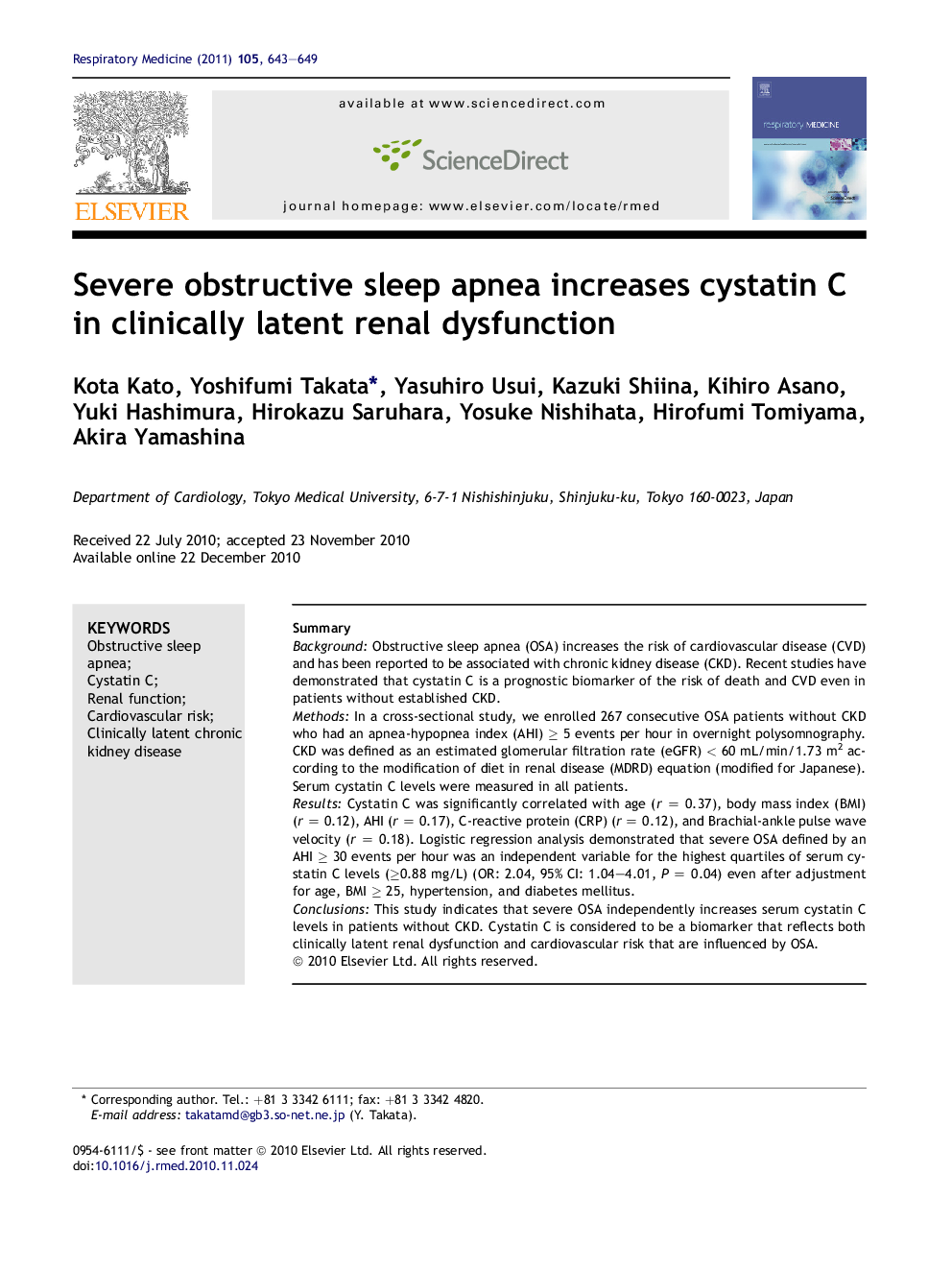| Article ID | Journal | Published Year | Pages | File Type |
|---|---|---|---|---|
| 4211360 | Respiratory Medicine | 2011 | 7 Pages |
SummaryBackgroundObstructive sleep apnea (OSA) increases the risk of cardiovascular disease (CVD) and has been reported to be associated with chronic kidney disease (CKD). Recent studies have demonstrated that cystatin C is a prognostic biomarker of the risk of death and CVD even in patients without established CKD.MethodsIn a cross-sectional study, we enrolled 267 consecutive OSA patients without CKD who had an apnea-hypopnea index (AHI) ≥ 5 events per hour in overnight polysomnography. CKD was defined as an estimated glomerular filtration rate (eGFR) < 60 mL/min/1.73 m2 according to the modification of diet in renal disease (MDRD) equation (modified for Japanese). Serum cystatin C levels were measured in all patients.ResultsCystatin C was significantly correlated with age (r = 0.37), body mass index (BMI) (r = 0.12), AHI (r = 0.17), C-reactive protein (CRP) (r = 0.12), and Brachial-ankle pulse wave velocity (r = 0.18). Logistic regression analysis demonstrated that severe OSA defined by an AHI ≥ 30 events per hour was an independent variable for the highest quartiles of serum cystatin C levels (≥0.88 mg/L) (OR: 2.04, 95% CI: 1.04–4.01, P = 0.04) even after adjustment for age, BMI ≥ 25, hypertension, and diabetes mellitus.ConclusionsThis study indicates that severe OSA independently increases serum cystatin C levels in patients without CKD. Cystatin C is considered to be a biomarker that reflects both clinically latent renal dysfunction and cardiovascular risk that are influenced by OSA.
